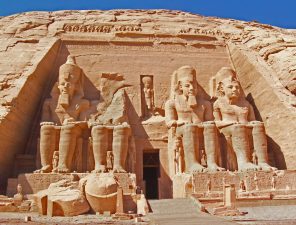 Orthodox Jews read a segment of the Five Books of Moses each week so that they can complete the entire Five Books within the course of a year. In last week’s Eco-Rabbi post we discussed Jacob’s descent to Egypt and the grand cedars that he brought with him.
Orthodox Jews read a segment of the Five Books of Moses each week so that they can complete the entire Five Books within the course of a year. In last week’s Eco-Rabbi post we discussed Jacob’s descent to Egypt and the grand cedars that he brought with him.
This week’s segment, Parshat Vayechi, is the last segment of the book of Genesis. The story finishes laying out the setting to the background story of the ancient Jew’s slavery in Egypt.
Most of this segment deals with the Jacob preparing for his death.
In preparation Jacob blesses all of his children. But his blessings are not the classic blessings that one would expect. One son Jacob calls a donkey. For another two, he includes their extreme violent nature in their blessing; Jacob actually curses them to be dispersed amongst their brethren. So what is the deal here? Why would a father bless his children such?
The commentaries explain that a blessing, if it is to be authentic and have any affect, has to include the nature of the person that is being blessed. Jacob needed to include the nature of his children in his blessings for them to take effect. But this concept goes deeper than simple hocus-pocus.
Many parents know, from experience, that if they try to force a nature onto a child, if that nature is not compatible with the child’s nature he will rebel. A blessing, in order to be affective, it needs to play on the blessed person’s strengths. If you bless a person who has no concept how to manage money that they should be rich, then you are actually not blessing them with riches, but dooming them to lose riches.
Jacob calling one son a donkey was not insult (aside from the fact that some 35 hundred years ago it probably wasn’t the same insult that it is now). Calling him a donkey was emphasizing his strengths, his perseverance and strength. Emphasizing his two son’s violent nature was perhaps partially out of anger, but to ignore such a trait can be catastrophic. A violent person, if he ignores his tendencies, may cause great harm one day; however, if he learns to channel his violence he can use it for constructive means.
This is an important message to remember when you are a parent, team leader or trying to become more involved in a movement like, let’s say, the “green” movement.
Play to your strengths
Taking on a lifestyle, such as trying to live a more religiously devout life, or the commitment to living in a more environmentally friendly way, can be overwhelming. But what is important to keep in mind is that every change you make makes a difference.
Whether you are building your relationship with God, or your connection with the planet (Maimonides says that the two are connected) play to your strengths. If you are good at organizing events, organize a community “green drinks” meet.
If you are good at finding ways to save money, find ways to save energy and water. The message of Parshat Vayechi is to play to your strengths and you will find that making changes in your life is natural and rewarding!



